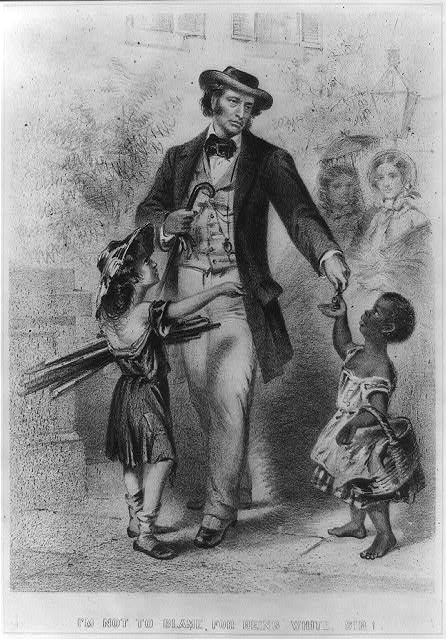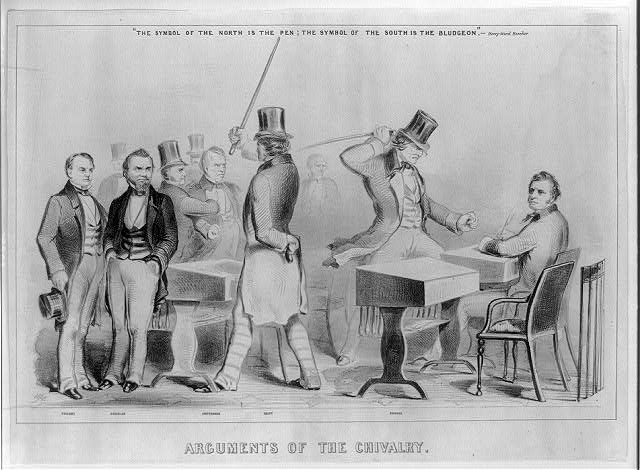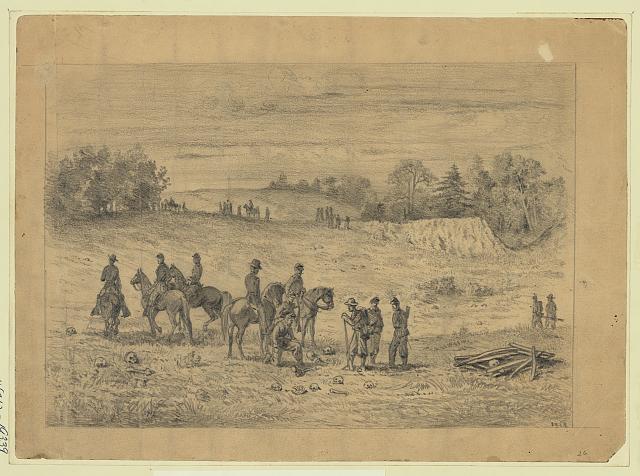You can read about this 1862 political carton at the Library of Congress. After being caned by Preston Brooks in the U.S. Senate in May 1856, Charles Sumner needed over three years to be able to fully recover from the damage and resume his duties in the Senate. “When he spent months convalescing, his political enemies ridiculed him and accused him of cowardice for not resuming his duties. The Massachusetts General Court reelected him in November 1856, believing that his vacant chair in the Senate chamber served as a powerful symbol of free speech and resistance to slavery.”
If some Northerners apparently resented what they saw as Sumner’s preferential treatment toward blacks, some Southerners brushed off his anti-slavery, anti-South rhetoric as a cowardly response to the beating he took back in 1856. From the Richmond Daily Dispatch September 17, 1863:
Charles Sumner’s late speech.
–We have before us the New York Herald, of the 11th, in which is published the speech of Charles Sumner at the Cooper Institute, on the foreign relations of the United States. He is the chairman of the Committee of Foreign Relations in the Yankee Senate, and what he says is, on that account, entitled to notice. The speech is the longest of which we have any account, except that of Benton against Kearney. It occupies seventeen closely printed columns of the Herald, and contains — so says the Herald–about seventy thousand words. It is, therefore, three times as long as the 9th volume of “Napoleon’s Memoirs,” which is a narrative of the “reign of one hundred days,” beginning with the landing from Elba and ending with the battle of Waterloo.
We are pleased to see that Sumner entertains very grave apprehensions of France and England on the score of recognition. We have merely dipped into the speech, but we can see that much. He abuses the South, of course, with all the virulence of a timid nature. But we ought not to blame him for that. It is a law of nature that a coward should be vindictive and abusive. Sumner is a most abject coward. God made him so, and we ought not to raise a voice against a work of God. He received from a Southern man the greatest of all personal indignities. No doubt if he had the courage he would have resented it. But as nature denied him this, we cannot find fault with him for following the natural bent of all cowards, and falling to railing at a safe distance. We pity Sumner.–He must be deeply sensible of his humiliation, and it is this that sharpens his temper. He is truly an object of commiseration — too cowardly to resent an indignity, and yet sensitive enough to feel it deeply.
Here are the details of the above 1856 political cartoon.
_________________________________________________



